
On May 13, 2023, the Seminar on Guangdong-Hong Kong-Macao Greater Bay Area Judicial Cooperation Innovation and Rule Alignment was successfully held at the International Exchange Center of Beijing Normal University at Zhuhai. The opening ceremony of the conference was presided over by Professor Liang Yingxiu, Dean of the Law School of Beijing Normal University, and Professor Du Yuhong, Deputy Director of the Management Committee of Beijing Normal University at Zhuhai, attended and delivered a speech.

Vice Director Du Yuhong, on behalf of the school, welcomed all the guests to the beautiful Beijing Normal University at Zhuhai and introduced the development of Beijing Normal University at Zhuhai to the conference guests. Deputy Director Du Yuhong pointed out that the full play of the advantages of the "One Country, Two Systems" system and the deep integration of Guangdong, Hong Kong, and Macao in the Greater Bay Area cannot be separated from the guarantee of the rule of law. The Guangdong-Hong Kong-Macao Greater Bay Area Judicial Research Innovation Base held this academic seminar, inviting renowned legal experts and practical experts to focus on in-depth discussions on the innovation of judicial cooperation and the alignment of rules in the Greater Bay Area. This will undoubtedly have a positive impact on promoting judicial cooperation in the Greater Bay Area.
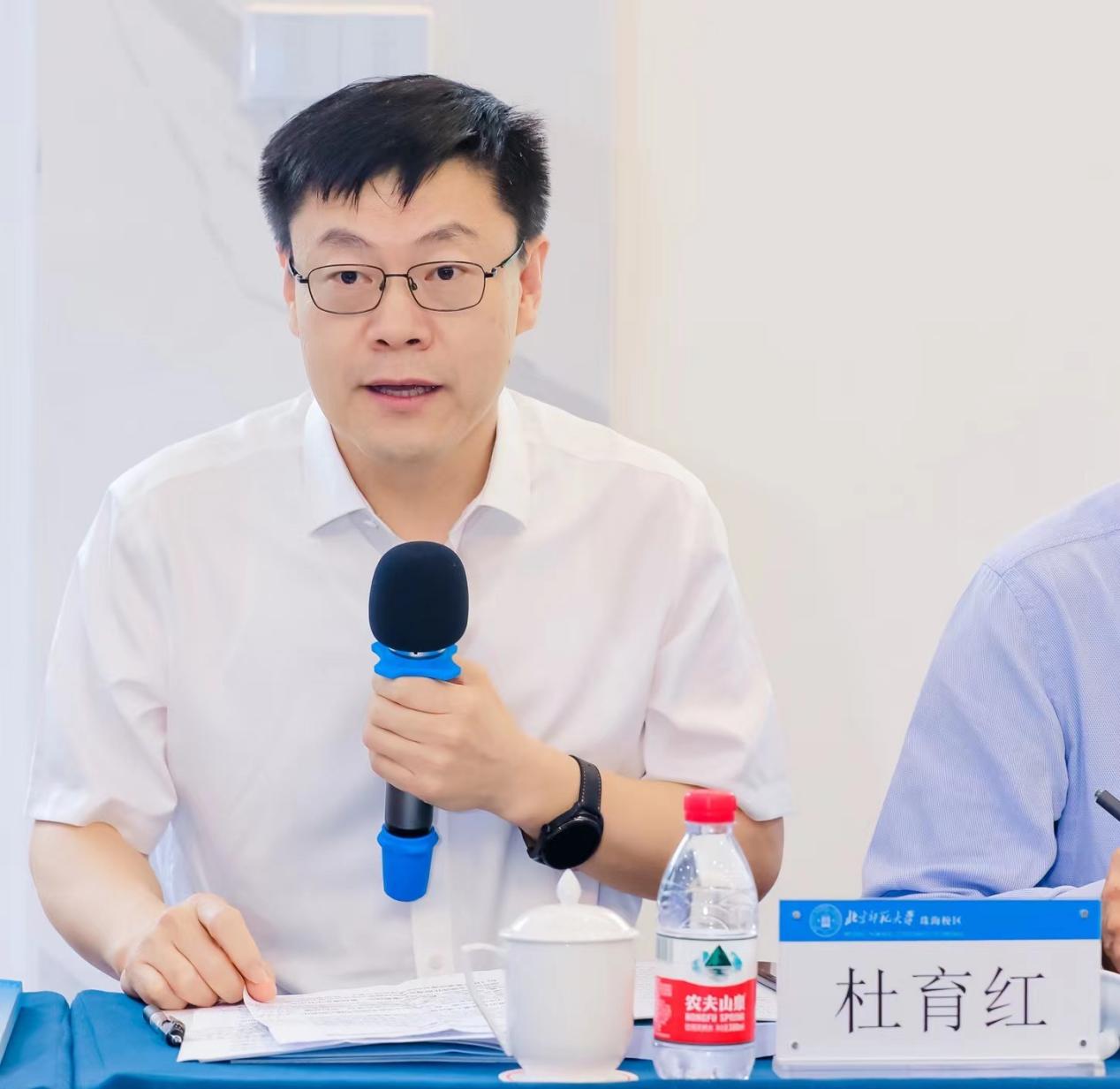
The award ceremony for the Guangdong-Hong Kong-Macao Greater Bay Area Judicial Cooperation Innovation and Rule Alignment Theme Essay Contest, which was held after the opening ceremony, was presided over by Liang Zhanxin, Director of the Research Office of the High People’s Court of Guangdong Province. Director Liang Zhanxin introduced that before the seminar was held, a writing competition with the theme of judicial cooperation innovation and rule alignment in the Guangdong-Hong Kong-Macao Greater Bay Area was carried out, and multiple high-quality academic papers with distinct themes and solid research were obtained. Following a rigorous evaluation by a panel of experts, the final list of prizewinners was announced.
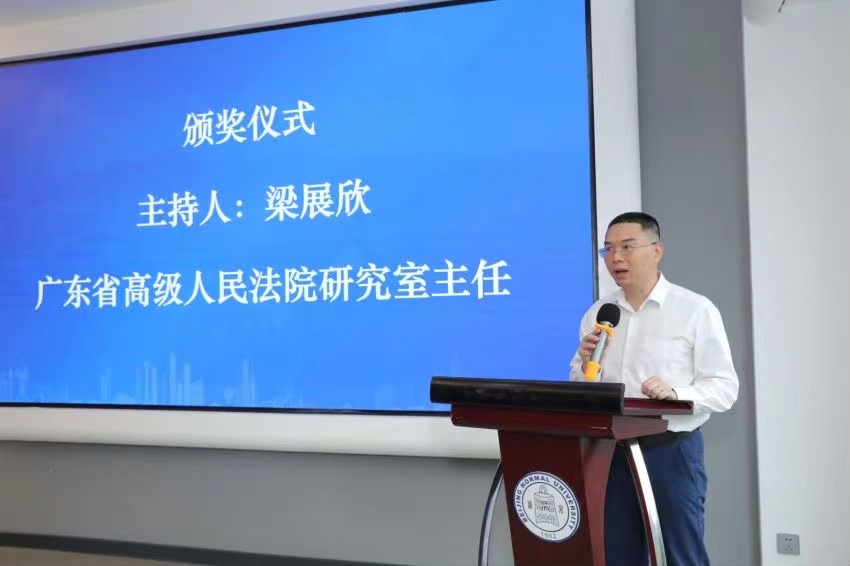
Following the recitation of the list of winners by Professor Liang Yingxiu, Dean of the Law School at Beijing Normal University, the ceremony proceeded with the distribution of honorary certificates. Esteemed dignitaries, including Professor Jiang Bixin, former Vice President of the Supreme People's Court and Vice Chairman of the Constitution and Law Committee of the 13th National People's Congress, as well as Vice Chairman of the Chinese Law Society, Feng Wei, the former Vice President of the Hong Kong and Macao Affairs Office of the State Council, and Si Yanli, Deputy Director of the Research Office of the Supreme People's Court, each presented the first, second, and third prize winners with their respective certificates.
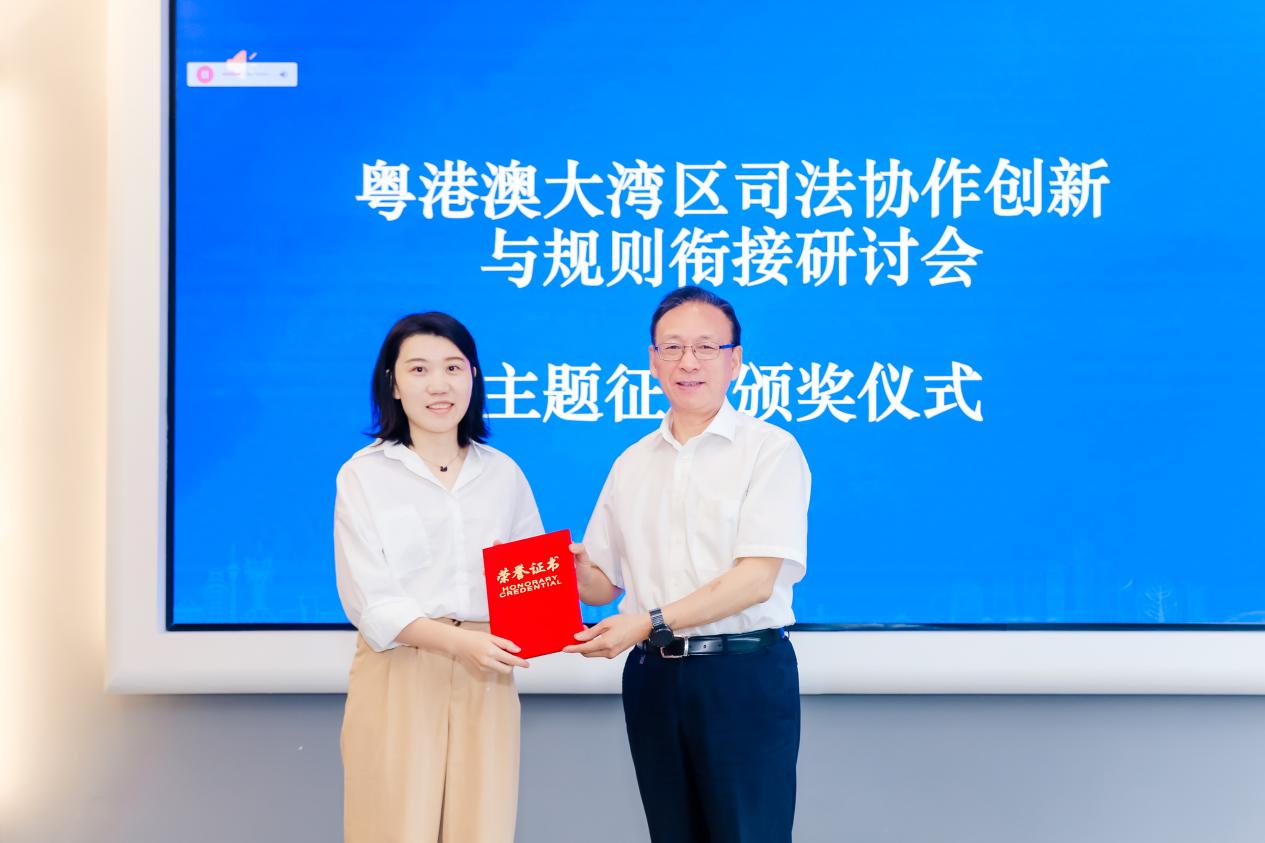
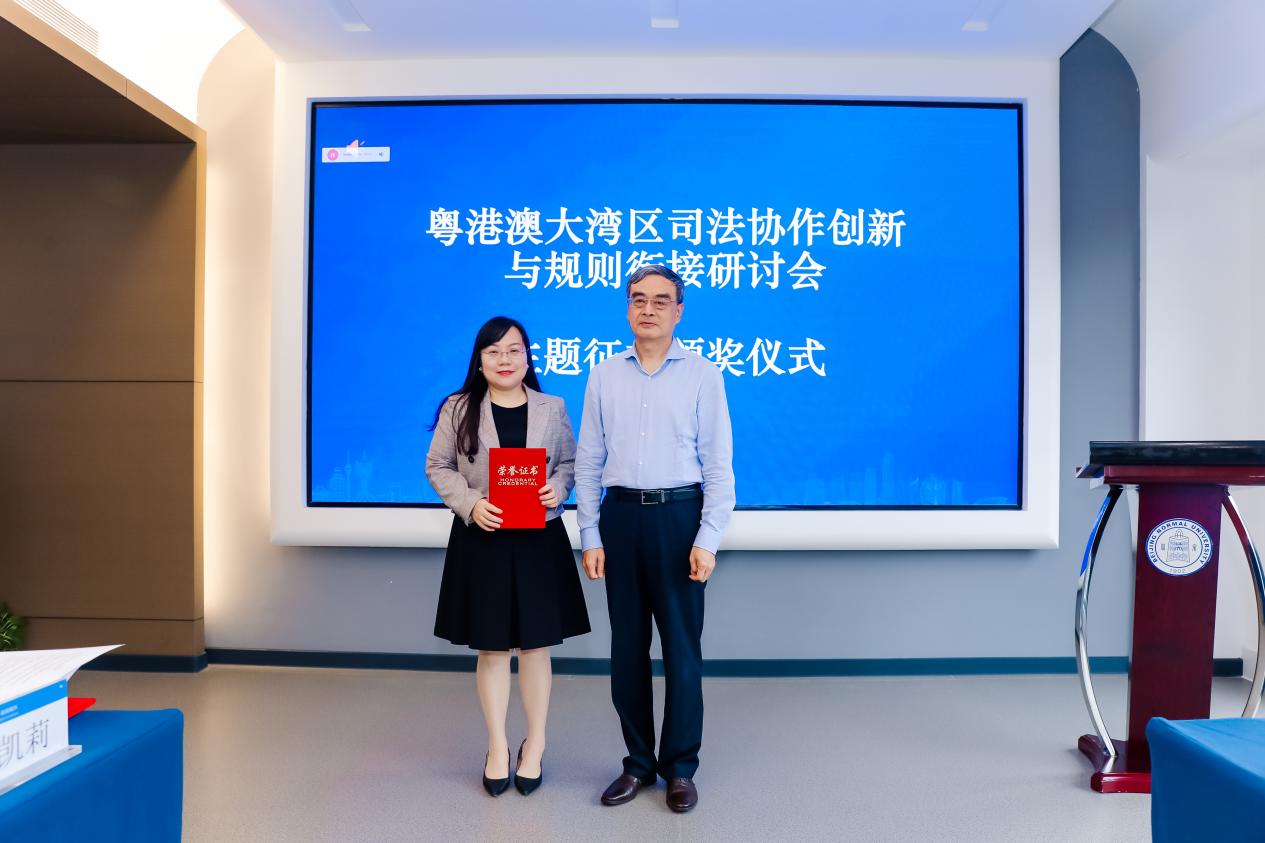
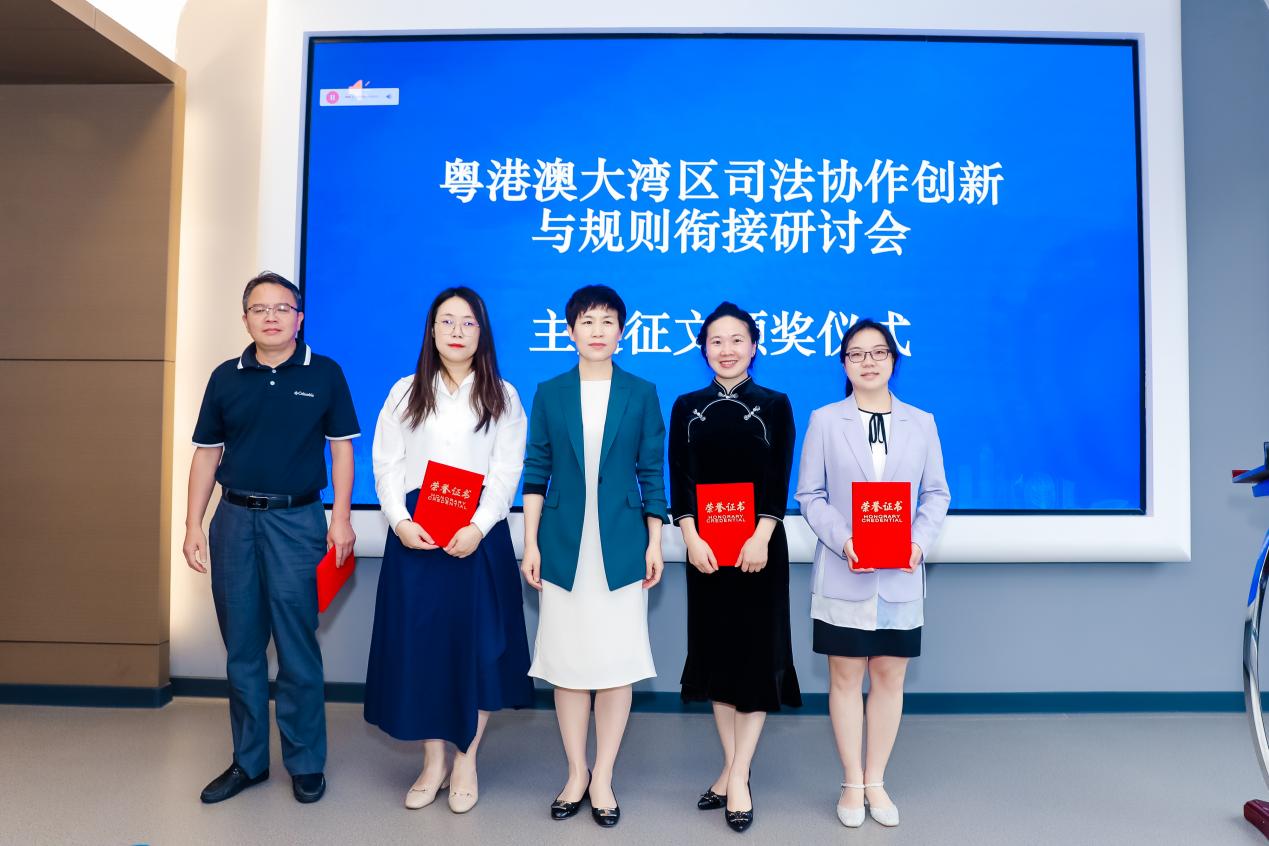
The keynote report was presided over by Professor Dong Hao, the chief expert of the Guangdong-Hong Kong-Macao Judicial Research and Innovation Base. Gong Jiali, the former president of the Guangdong Higher People's Court and member of the Advisory Committee of the Supreme People's Court, made a written keynote report. Feng Wei, the former deputy director of the Hong Kong and Macao Affairs Office of the State Council, and Professor Jiang Bixin, former Vice President of the Supreme People's Court and Vice Chairman of the Constitution and Law Committee of the 13th National People's Congress, as well as Vice Chairman of the Chinese Law Society, each made a keynote report.

Gong Jiali, former President of the High People’s Court of Guangdong Province and member of the Advisory Committee of the Supreme People's Court, reviewed and looked forward to the cross-border judicial cooperation work in the Guangdong-Hong Kong-Macao Greater Bay Area from three aspects: achievements and experience, situation and challenges, vision and exploration. He emphasized that “One Country, Two Systems” is a great feat of socialism with Chinese characteristics and an unprecedented great cause. Adhering to the foundation of “one country” and making good use of the benefits of “two systems” are the general requirements for doing a good job in the trial work related to Hong Kong and Macao. Gong Jiali stated that the judicial cooperation work in the Guangdong-Hong Kong-Macao Greater Bay Area is of great significance, and in tackling the integration of systems in the Guangdong-Hong Kong-Macao Greater Bay Area, the historical responsibility and judicial responsibility of Guangdong courts should be fully reflected.
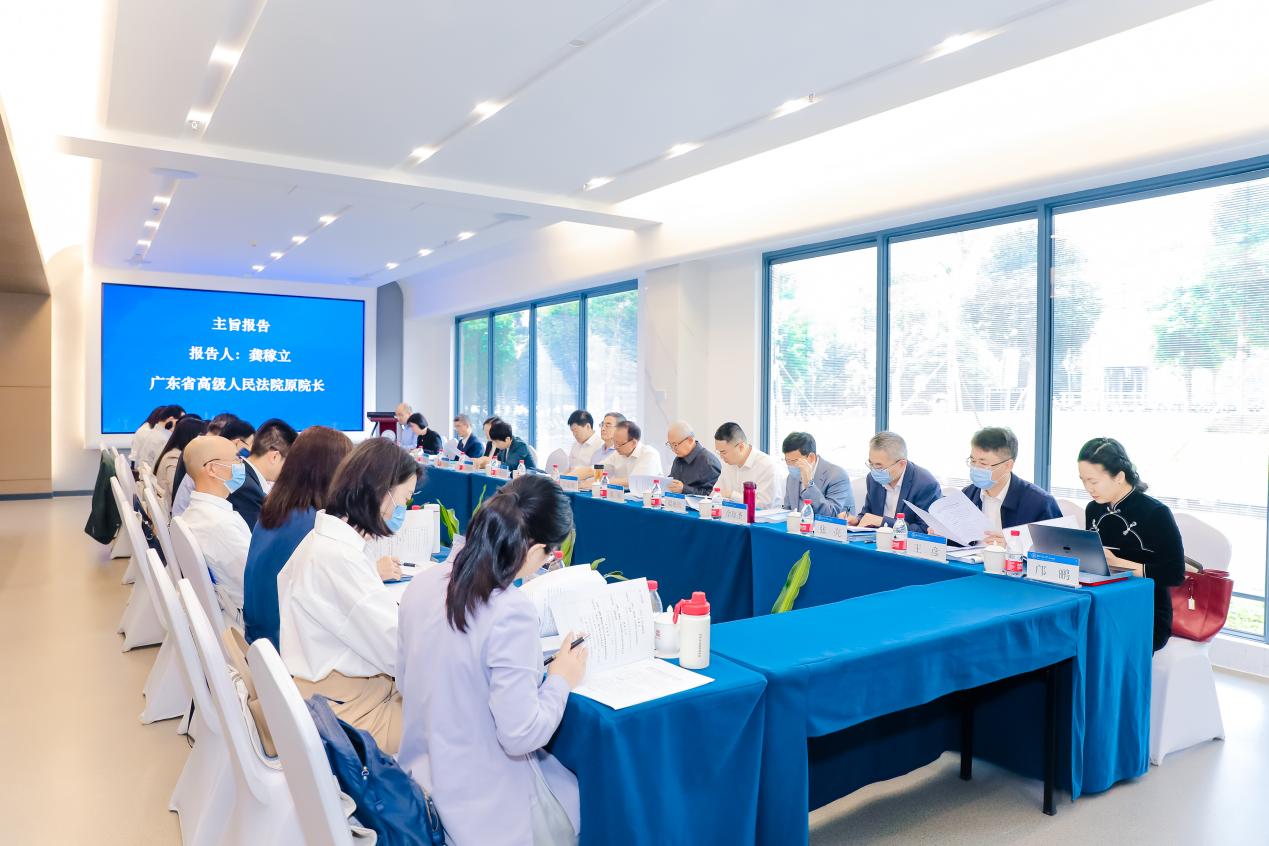
Feng Wei, former Deputy Director of the Hong Kong and Macao Affairs Office of the State Council, analyzed the positioning of judicial cooperation issues in the Guangdong-Hong Kong-Macao Greater Bay Area in his speech. He pointed out that the issue of judicial cooperation in the Guangdong-Hong Kong-Macao Greater Bay Area is a regional problem, a national problem, and a major global issue. The research on judicial cooperation in the Guangdong-Hong Kong-Macao Greater Bay Area is in line with national strategic development goals and also contributes to the long-term development and construction of the rule of law in the Greater Bay Area.
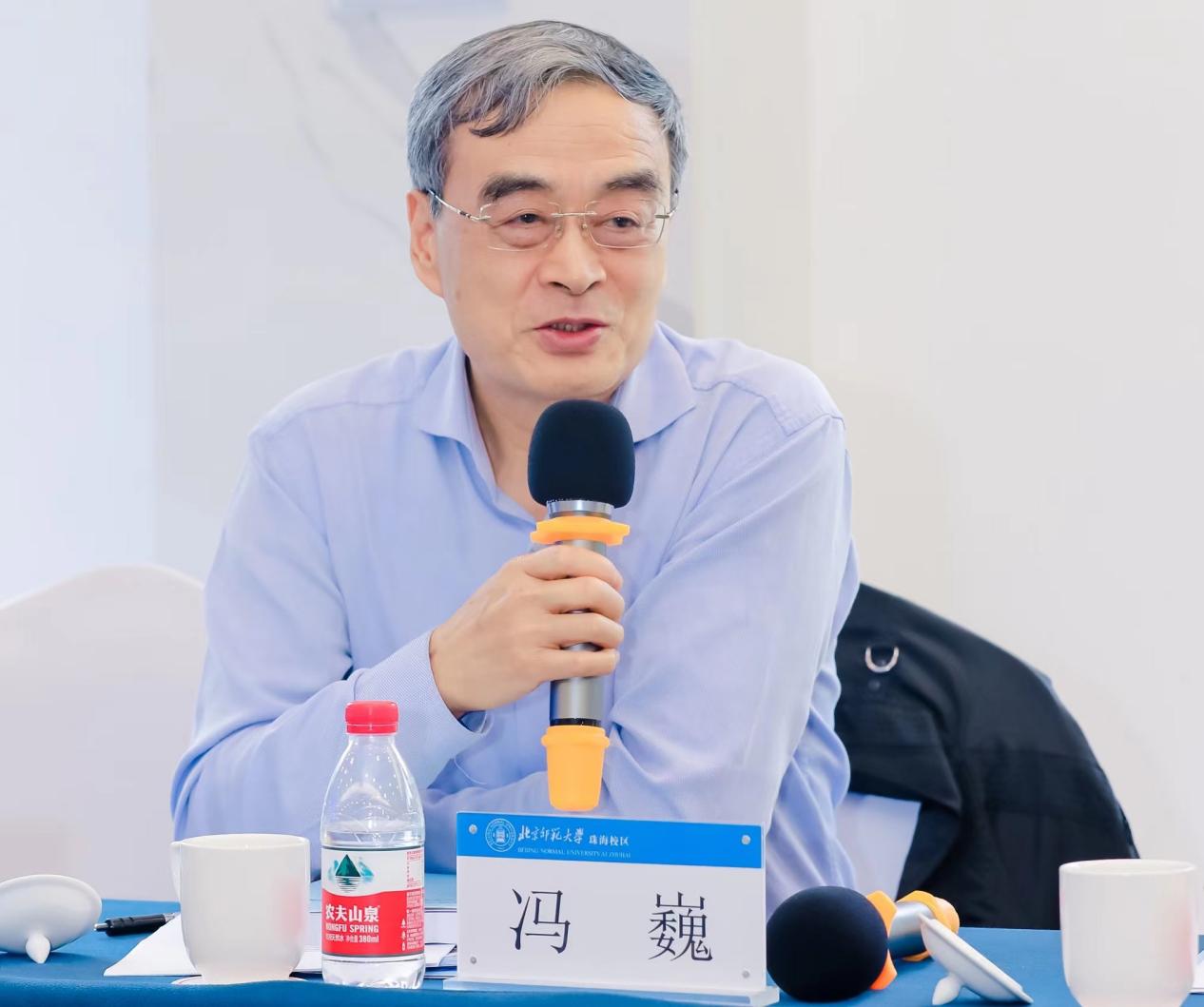
Jiang Bixin, the former Vice President of the Supreme People's Court and Vice Chairman of the Constitution and Law Committee of the 13th National People's Congress, lauded the research on judicial collaboration and rule harmonization within the Guangdong-Hong Kong-Macao Greater Bay Area. He encapsulated the essence of the seminar's theme in three poignant statements: firstly, "pursuing collaboration with genuine sincerity"; secondly, "enhancing rule alignment with the intention of return"; and thirdly, "realizing mutual benefits through innovative endeavors."

The keynote speech session was hosted by Professor Liang Yingxiu, Dean of the Law School of Beijing Normal University. Si Yanli, Deputy Director of the Research Office of the Supreme People's Court, She Qiongsheng, Chief Judge of the Civil Fourth Division of the High People’s Court of Guangdong Province, Wang Zhibin, Executive Vice President of the Zhuhai Intermediate People's Court, Chen Xiaojun, President of the People's Court of the Guangdong-Macao In-Depth Cooperation Zone in Hengqin, Ci Yunxi, Vice President of the People's Court of the Shenzhen Qianhai Cooperation Zone, Wang Yan, Deputy Director of the Legal Affairs Bureau of the Guangdong-Macao In-Depth Cooperation Zone in Hengqin, Professor Zhang Liang, Dean of the Law School of Sun Yat-sen University, and Zhao Li, Chief Judge of the Foreign Affairs Division of the People's Court of the Nansha District of the Guangdong Free Trade Zone, delivered keynote speeches, respectively.

Si Yanji, deputy director of the Research Office of the Supreme People's Court, put forward three views on the new positioning of the Guangdong-Hong Kong-Macao Greater Bay Area when the General Secretary Xi visited Guangdong in April this year, combined with the responsibilities of the court. The first is to promote the modernization of judicial concepts through elements of the rule of law, active judiciary, and the unity of fairness and efficiency. The second is to promote the modernization of judicial capabilities by improving work mechanisms, optimizing linkage mechanisms, and strengthening the construction of professional teams. The third is to further expand communication channels, strengthen judicial cooperation, and deepen the integration of justice and technology to promote the modernization of cooperation mechanisms. In addition, she also suggested promoting the informatization of daily communication, making full use of social media platforms, and continuously improving the depth and breadth of litigation for the coordinated development of justice in the Greater Bay Area.
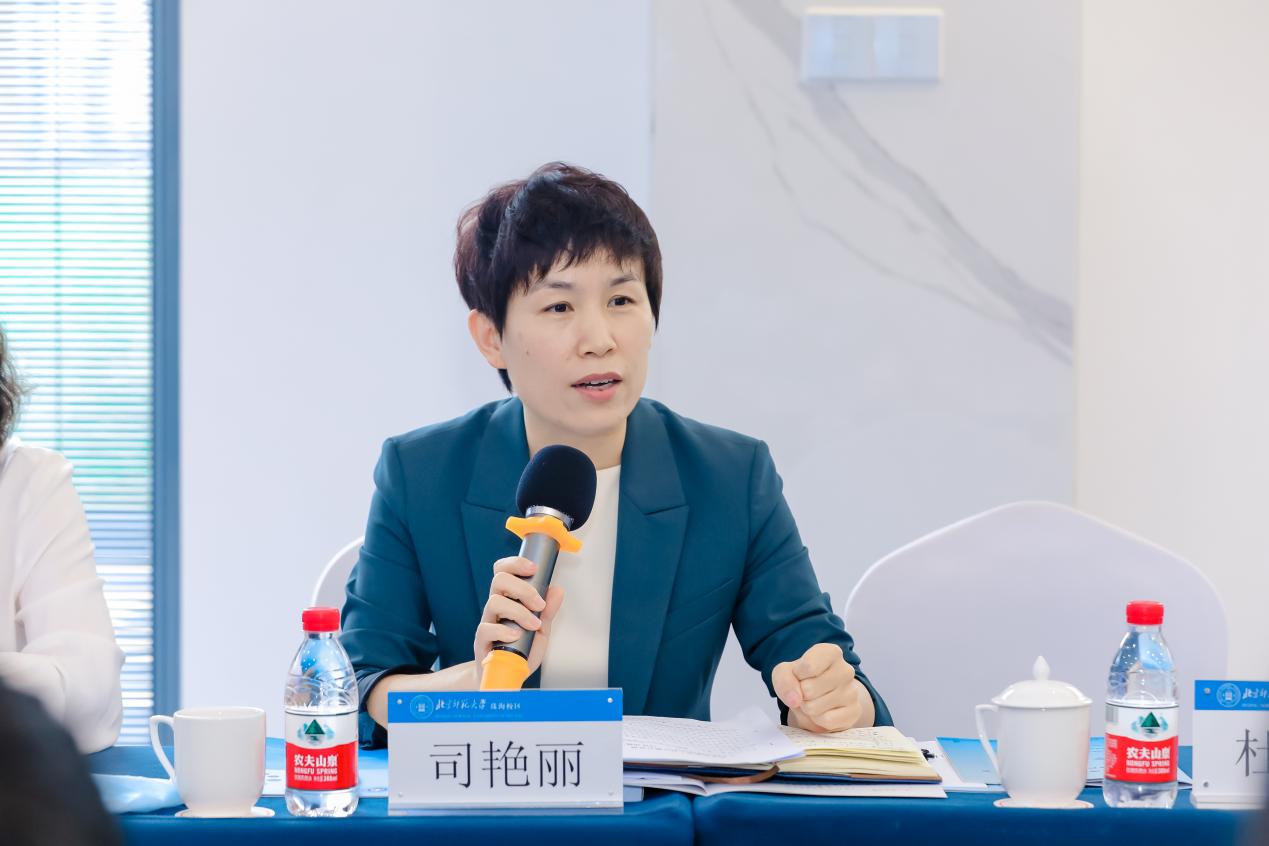
She Qiongsheng, the Chief Judge of the Fourth Civil Division of the High People’s Court of Guangdong Province, introduced the main contents of the "Guidelines on the Coordination of Judicial Rules for the Trial of Commercial Disputes Involving Hong Kong and Macao by Mainland People's Courts in the Guangdong-Hong Kong-Macao Greater Bay Area (Part 1)" formulated and released by High People’s Court of Guangdong Province, and emphasized the following three aspects. One is about the issue of parallel litigation between Guangdong, Hong Kong, and Macao, the other is about moderately expanding the scope of application of extraterritorial laws, and the third is about the issue of the probative value of civil evidence formed in Hong Kong and Macao. He elaborated on the innovative measures and latest developments in judicial practice of Guangdong courts in exploring the alignment of judicial rules, and stated that they will continue to promote the alignment of judicial rules in depth and breadth, and strive to provide judicial services and guarantees for the construction of the Greater Bay Area.
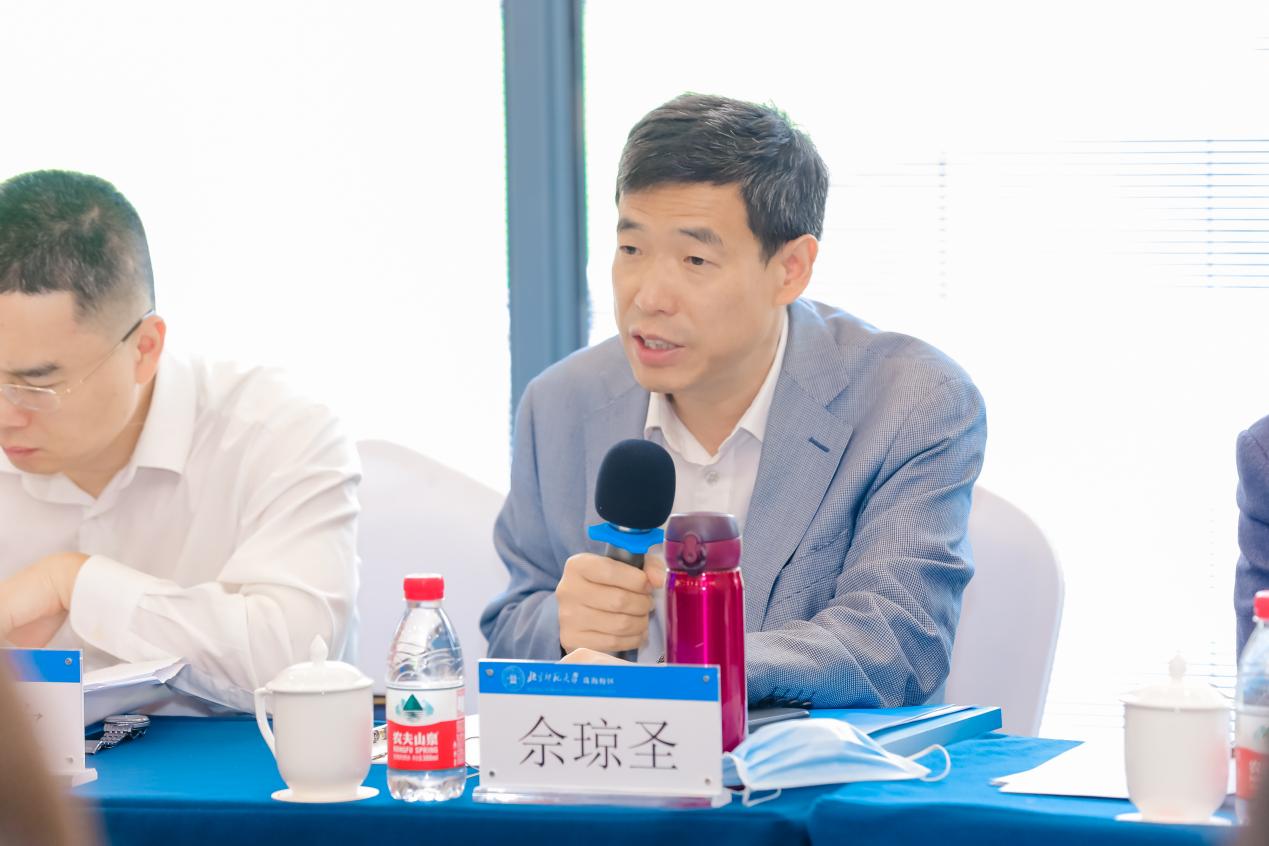
Wang Yan, Deputy Director of the Legal Affairs Bureau for the Guangdong-Macao In-Depth Cooperation Zone in Hengqin, elucidated the zone's approach to addressing rule alignment challenges in the realm of law enforcement. His presentation centered on three key aspects: uniqueness, integration, and innovation. Wang underscored that the cooperation zone is distinguished by its geographical location, status, strategic positioning, objectives, and institutional framework, necessitating a departure from traditional practices and a commitment to innovative solutions. He highlighted that the zone's rule alignment efforts are focused on the profound integration of national policies, aiming to facilitate the seamless exchange of Hengqin-Macao elements and to foster Hengqin-Macao integration through effective rule alignment.

Wang Zhibin, the Executive Vice President of the Zhuhai Intermediate People's Court, presented an overview of the court's handling of cases involving Macao and shared insights into the Zhuhai Court's endeavors in collaborative innovation and rule alignment from four distinct dimensions. Firstly, she discussed the enhancement of mechanisms for the identification of foreign laws. Secondly, she highlighted the establishment of the first national panel in Macao dedicated to the protection of women's and children's rights and interests. Thirdly, she noted the pioneering release of the "One Case, Two Judgments: Zhuhai-Macao Civil and Commercial Comparative Case Analysis." Fourthly, she mentioned the issuance of the "White Paper on Civil and Commercial Trials Involving Macao in Zhuhai Courts." Additionally, Wang detailed the accomplishments of Zhuhai courts in refining cross-border civil and commercial dispute resolution and judicial exchange and cooperation. She affirmed that Zhuhai courts and Macao courts are committed to further strengthening their close relationship, with the aspiration of making an even greater contribution to the advancement of the Guangdong-Hong Kong-Macao Greater Bay Area.
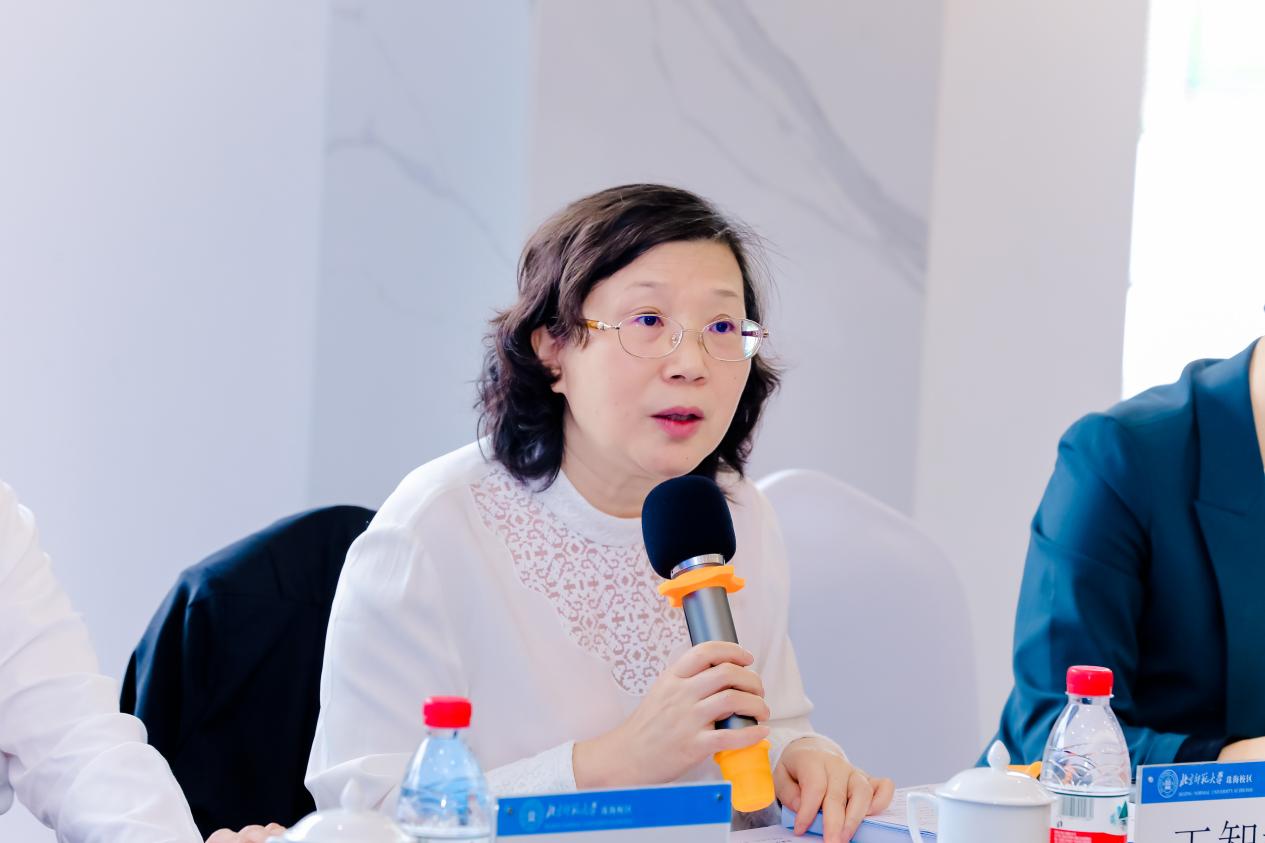
Chen Xiaojun, President of the People's Court of the Guangdong-Macao In-Depth Cooperation Zone in Hengqin, delved into the disparities between the legal provisions and judicial procedures of the Chinese mainland and Macao. He intertwined his discussion with three practical issues to articulate his perspectives on the concept of an active judiciary. Chen underscored that an active judiciary is not only essential for upholding the principle of prioritizing the people's interests but is also a critical necessity for the growth of the cooperation zone. He acknowledged that within the legal framework of the mainland, an active judiciary may encounter risks from both public and legal perspectives. To optimize the role of an active judiciary, Chen suggested that it is imperative not only to grant judges ample discretion but also to thoroughly respect the right of the parties to modify and innovate in the design of trial procedures. This approach would ensure the equality of all participants and strike a balance between the rights and interests involved in litigation.
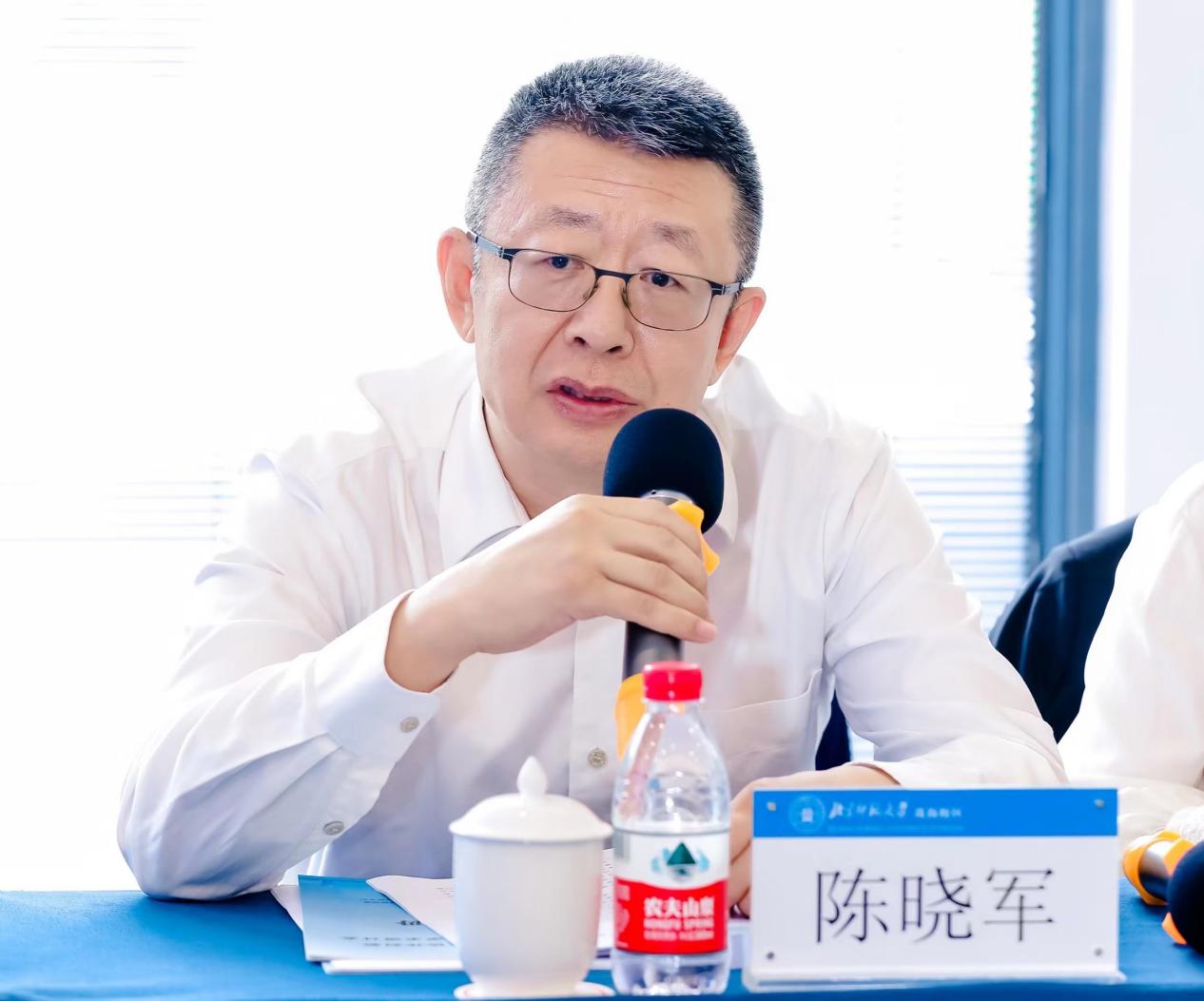
Ci Yunxi, Vice President of the People's Court of Qianhai Cooperation Zone in Shenzhen, emphasized the practices and experiences of Qianhai Court in promoting the alignment of cross-border commercial litigation rules from four aspects: firstly, in terms of system, Qianhai Court has taken the lead in forming a system of cross-border litigation rule alignment, and has established a practical and technological approach to simplify the litigation procedures of Hong Kong and Macao related cases, creating a new online litigation model and building a composite and competitive trial system. Secondly, in terms of substance, we will continuously improve the scenarios and application mechanisms of foreign laws, and strengthen the comparison and alignment of legal rules for commercial entities. Thirdly, in terms of mediation, we will establish an international commercial dispute resolution center and deepen the "soft connectivity" of commercial mediation rules. Fourthly, in terms of collaboration and communication, we will continuously open up new paths for inter regional judicial assistance and exchange, and consolidate consensus on the rule of law through mutual trust and assistance in the judiciary.

Professor Zhang Liang, Dean of the Law School of Sun Yat-sen University, pointed out that the Guangdong-Hong Kong-Macao Greater Bay Area should clarify its positioning in the development process and learn more advanced rules in the construction of the legal system, starting from the demonstration law. In the context of the "One Country, Two Systems, Three Jurisdictions" policy, while taking into account the characteristics of the three regions, the Guangdong-Hong Kong-Macao Greater Bay Area should also consider more international model laws, and regard important rules with international influence as the most important benchmark for establishing model laws in the Greater Bay Area. President Zhang Liang also emphasized the important role of judicial organs in the construction of model laws, and advocated that courts in the Guangdong-Hong Kong-Macao Greater Bay Area strengthen communication and cooperation, focus on discussing controversial and key issues in the trial process of the Bay Area, and give full play to the important role of judicial activities in resolving differences and promoting the alignment of rules.

Zhao Li, Chief Judge of the Foreign Affairs Division of the People's Court of Nansha District in Guangdong Free Trade Zone, elaborated on the "N+4+2" Guangdong-Hong Kong-Macao Judicial Rule Alignment Mechanism creatively proposed by the Nansha Court from the perspective of deeply implementing the major strategic deployment of the Party Central Committee on building the Guangdong-Hong Kong-Macao Greater Bay Area. Firstly, the Nansha Court has explored the alignment of "N" litigation rules, effectively demonstrating the role of judicial integration and development in the Greater Bay Area. The second is to innovate the "four" channels for judicial participation of Hong Kong and Macao residents, and promote high-level and all-round connectivity. The third is to establish "two" platforms for judicial cooperation and exchange among Guangdong, Hong Kong, and Macao, effectively realizing the exchange and integration of regional judicial resources.
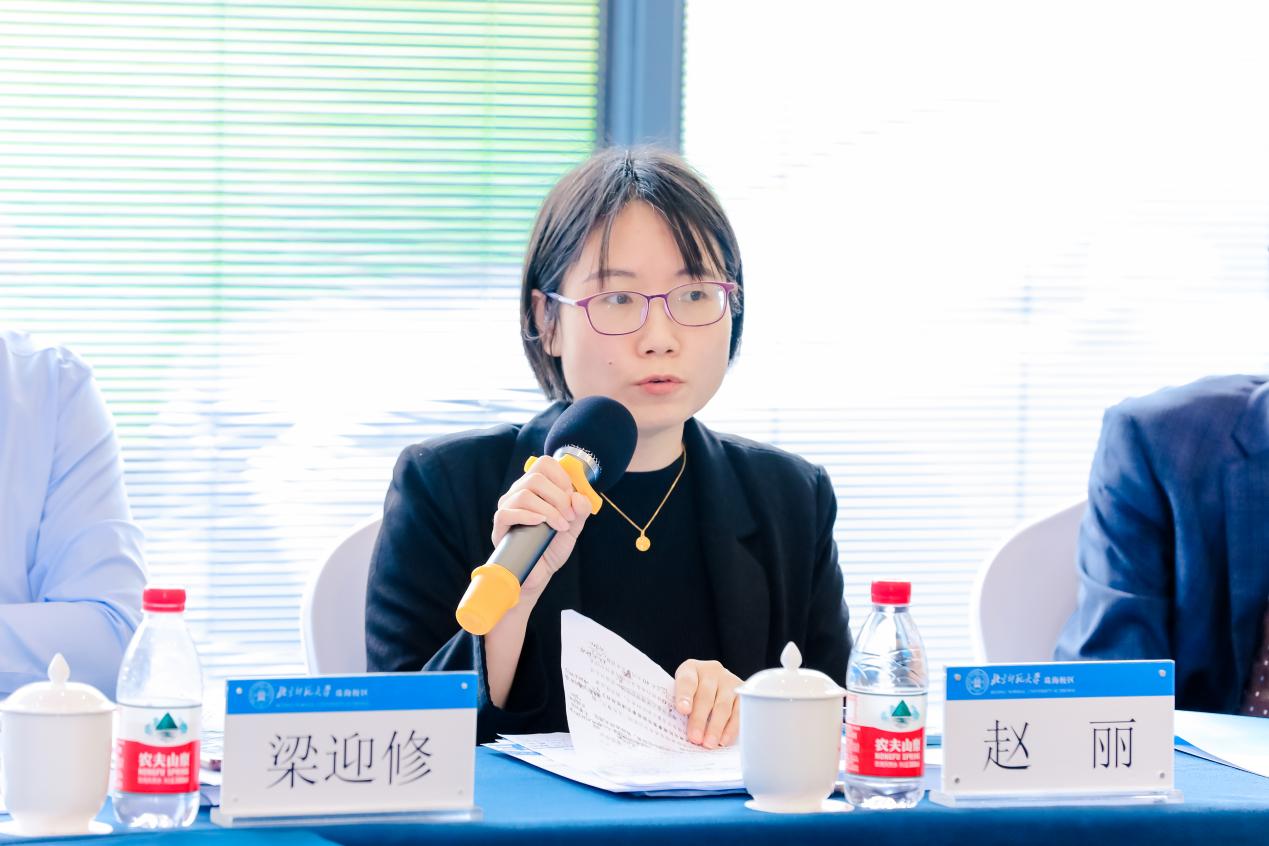
The subsequent seminar was chaired by Professor Liu Peifeng and Professor Liu Rongjun from the Law School of Beijing Normal University. Xie Ping, Director of the Research Office of the Guangzhou Intermediate People's Court, He Zhinan, Director of the Research Office of the Foshan Intermediate People's Court, Li Lifei, Judge of the Foreign Affairs Division of the Shenzhen Intermediate People's Court, Tang Wen, Third level Senior Judge of the Zhuhai Intermediate People's Court, Wang Qinghua, Professor of the Law School of Beijing Normal University, Jiao Xiaoding, Judge of the High People’s Court of Guangdong Province, Chen Wei, Director of the Research Office of the Zhuhai Intermediate People's Court, Cao Rubo, Vice President of the People's Court of the Guangdong-Macao In-Depth Cooperation Zone in Hengqin, Huang Fenglan, Professor of the Law School of Beijing Normal University, and other representatives from the practical field participated in the comments. The award-winning essay was written by He Xiaoyi, Fourth level Researcher of the Zhuhai Intermediate People's Court, Kuang Li, Judge of the People's Court of the Guangdong-Macao In-Depth Cooperation Zone in Hengqin, and Law School PhD student Li Kaili, judge Ye Fanbo of Shenzhen Intermediate People's Court Meng Qingfeng, Deputy Chief Judge of the Intellectual Property Division of Zhuhai Intermediate People's Court, Su Han, Judge of Xiangzhou District People's Court of Zhuhai, Wei Xiaoyin, Assistant Judge of Nansha District People's Court of Guangzhou, and Yang Jing, Judge of High People’s Court of Guangdong Province, gave speeches, and experts and scholars participated in discussion.
Announcement on the Evaluation of the Theme Essay Contest on Judicial Cooperation Innovation and Rule Alignment in the Guangdong-Hong Kong-Macao Greater Bay Area
The essay contest has garnered an enthusiastic response from the judiciary and other legal professionals within the Guangdong-Hong Kong-Macao Greater Bay Area, yielding a total of 45 high-caliber academic submissions that stand out for their unique qualities and significant contributions. Following a meticulous two-stage assessment by a panel of experts, a total of 17 exceptional papers were chosen for recognition, comprising 1 first-place winner, 3 second-place winners, 5 third-place winners, and 8 merit awards. The list of winners is now officially released as follows:
No. |
Thesis Title |
Author |
Institution |
Prize |
1 |
Research on the Service of Service System between Mainland China and Macao Civil and Commercial Regions: A Case Study of Judicial Practice in Zhuhai Court |
Chen Fa, Guo Jianyong, Tang Yuping, Su Han |
Zhuhai Intermediate People's Court |
The First Prize |
2 |
Research on the Mutual Recognition and Enforcement System of Civil and Commercial Judgments between Mainland China and Macau: A Sample of Judicial Practice of Zhuhai Intermediate People's Court in Recognizing and Enforcing Civil and Commercial Judgments of Macau Courts in the Past Five Years |
He Xiaoyi |
Zhuhai Intermediate People's Court |
The Second Prize |
3 |
Research on the Connection of Cross border Bankruptcy Cooperation Rules between Mainland China and Hong Kong: Based on the Interpretation Perspective of the "Opinions of the Supreme People's Court on Carrying out Pilot Work on Recognizing and Assisting Bankruptcy Procedures in the Hong Kong Special Administrative Region" |
Ye Fanbo |
Shenzhen Intermediate People's Court |
The Second Prize |
4 |
Research on Cross border Portability of Guangdong Hong Kong Pension Insurance |
Deng Tianrong |
Huangpu District People's Court, Guangzhou |
The Second Prize |
5 |
Review and Reform of the Operation of Service Procedure for Hong Kong Civil and Commercial Cases under the Background of Inter district Judicial Conflict: A Study Sample Based on the Trial Practice of Hong Kong Civil and Commercial Cases in G City from 2018 to 2022 |
Liu Huijuan, Wei Xiaoyin |
Nansha District People's Court, Guangzhou |
The Third Prize |
6 |
Conflict and Coordination of Civil Jurisdiction between Mainland China and Macau: A Perspective from the Judicial Practice of the People's Court of Hengqin Guangdong Macau Deep Cooperation Zone |
Kuang Li, Que Siliang, Lin Xiaoyan, Chen Xiaojun |
People's Court of Guangdong-Macao In-Depth Cooperation Zone in Hengqin
|
The Third Prize |
7 |
Research on Cross border Intellectual Property Protection: Taking the Cross border Intellectual Property Protection of Macao's "Characteristic Old Stores" as the Entry Point |
Chen Ying, Meng Qingfeng, Ma Yan, You Meiting |
Zhuhai Intermediate People's Court |
The Third Prize |
8 |
Coordination and elimination of legal conflicts in Guangdong, Hong Kong, and Macao: A discussion on the alignment of legal rules in the Greater Bay Area through "gambling debt" cases |
Li Kaili |
University of Macau Law School |
The Third Prize |
9 |
Exploration of Basic Principles for Mutual Recognition of Bankruptcy (Liquidation) Procedures between Mainland China and Hong Kong |
Yang Jing |
High People's Court of Guangdong Province |
The Third Prize |
10 |
Research on the Connection of Inter Regional Delivery System between Mainland China and Hong Kong |
Qianhai Court Research Group (Main members: Bian Fei, Xie Wen, Pan Zeling, Ye Chunmi) |
People's Court of Shenzhen Qianhai Cooperation Zone
|
Merit Award |
11 |
From the perspective of public policy considerations of foreign-related contracts, the alignment of rules in the Guangdong-Hong Kong-Macao Greater Bay Area |
Cheng Ye |
People's Court of Shenzhen Qianhai Cooperation Zone
|
Merit Award |
12 |
On the Legal Arrangements for Establishing Injustice Orders in the Jurisdiction of Civil and Commercial Cases in the Guangdong-Hong Kong-Macao Greater Bay Area |
Zhang Sainan, Peng Shiqing |
Law School of South China Normal University |
Merit Award |
13 |
Research on the Application of the United Nations Convention on Contracts for the International Sale of Goods in Hong Kong, China: Existing Conditions and Feasible Paths |
Li Sheng |
Beijing Normal University Law School |
Merit Award |
14 |
Exploring the innovative system of court participation in cross regional governance and judicial cooperation in the Guangdong-Hong Kong-Macao Greater Bay Area: from the perspective of market-oriented mediation |
Chen Liubo |
People's Court of Shenzhen Qianhai Cooperation Zone
|
Merit Award |
15 |
Exploration and Practice of Diversified Dispute Resolution Mechanisms in Maritime Justice in the Guangdong-Hong Kong-Macao Greater Bay Area |
Liu Yufei, Zhang Le, Yan Hui |
Guangzhou Maritime Court |
Merit Award |
16 |
Research on the Connection of Criminal Prosecution Rules in the Guangdong-Hong Kong-Macao Greater Bay Area |
Liu Zhipeng |
Law School of SYSU |
Merit Award |
17 |
Research on the Diversified Resolution Mechanism of Cross border Disputes: Taking the Work Practice of the People's Court of Guangdong-Macao In-Depth Cooperation Zone in Hengqin as the Starting Point |
Li Yuyuan, Hu Dongmei, Liang Shiyun, Chen Ye, Wu Jiaying |
People's Court of Guangdong-Macao In-Depth Cooperation Zone in Hengqin
|
Merit Award |
